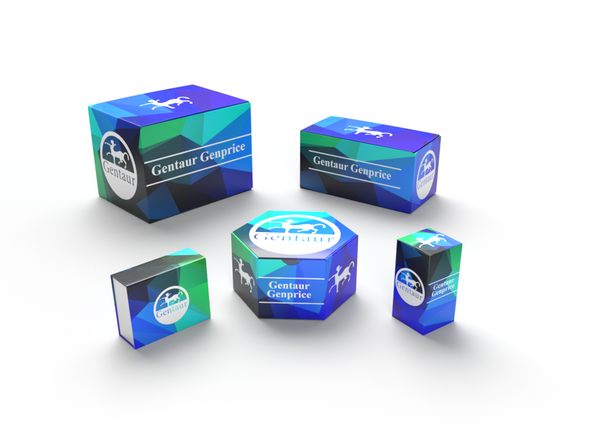740
Human Ubiquitin D (UBD) ELISA Kit | AE12550HU
- SKU:
- 740-AE12550HU
- Availability:
- Usually ships in 5 working days
Description
Human Ubiquitin D (UBD) ELISA Kit | AE12550HU | Gentaur UK, US & Europe Distribution
Species Reactivity: Human (Homo sapiens)
Abbreviation: UBD
Alternative Name: DADB-115L1.4; FAT10; GABBR1; UBD-3; diubiquitin
Application: ELISA
Range: 3.12-200 ng/mL
Sensitivity: 1.34 ng/mL
Intra-Assay: ≤5.4%
Inter-Assay: ≤8.0%
Recovery: 0, 89
Sample Type: Serum, Plasma, Other biological fluids
Detection Method: Sandwich
Analysis Method : Quantitive
Test Principale: This assay employs a two-site sandwich ELISA to quantitate UBD in samples. An antibody specific for UBD has been pre-coated onto a microplate. Standards and samples are pipetted into the wells and anyUBD present is bound by the immobilized antibody. After removing any unbound substances, a biotin-conjugated antibody specific for UBD is added to the wells. After washing, Streptavidin conjugated Horseradish Peroxidase (HRP) is added to the wells. Following a wash to remove any unbound avidin-enzyme reagent, a substrate solution is added to the wells and color develops in proportion to the amount of UBD bound in the initial step. The color development is stopped and the intensity of the color is measured.
Product Overview: Ubiquitin D is a protein encoded by the UBD gene.Using selective cDNA hybridization of a YAC containing the HLA-F locus region on chromosome 6, followed by Southern and Northern blot analyses, Fan et al. (1996) isolated a cDNA, which they called 1F12, encoding a protein similar to diubiquitin. The 1.1-kb transcript was detected only in B-cell lines transformed by Epstein-Barr virus. By subtractive hybridization of dendritic cell (DC) libraries and EST database searching, Bates et al. (1997) obtained a full-length cDNA encoding diubiquitin. The predicted 165-amino acid protein has 2 ubiquitin-like domains, each of which has 2 cysteines. Southern blot analysis indicated that the cDNA represents a single-copy gene.
Stability: The stability of ELISA kit is determined by the loss rate of activity. The loss rate of this kit is less than 5% within the expiration date under appropriate storage condition. The loss rate was determined by accelerated thermal degradation test. Keep the kit at 37°C for 4 and 7 days, and compare O.D.values of the kit kept at 37°C with that of at recommended temperature. (referring from China Biological Products Standard, which was calculated by the Arrhenius equation. For ELISA kit, 4 days storage at 37°C can be considered as 6 months at 2 - 8°C, which means 7 days at 37°C equaling 12 months at 2 - 8°C) .










